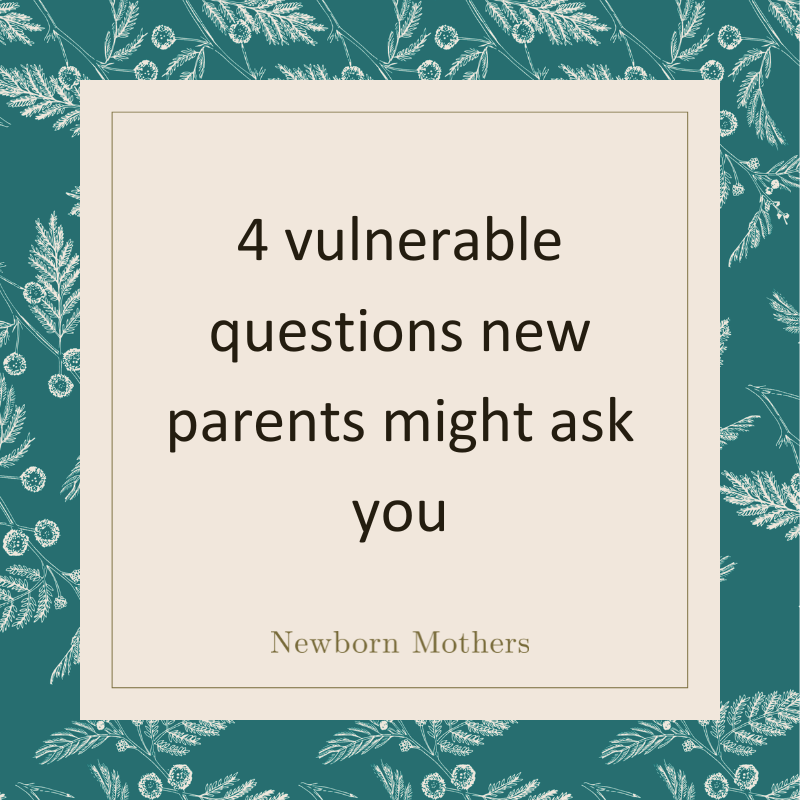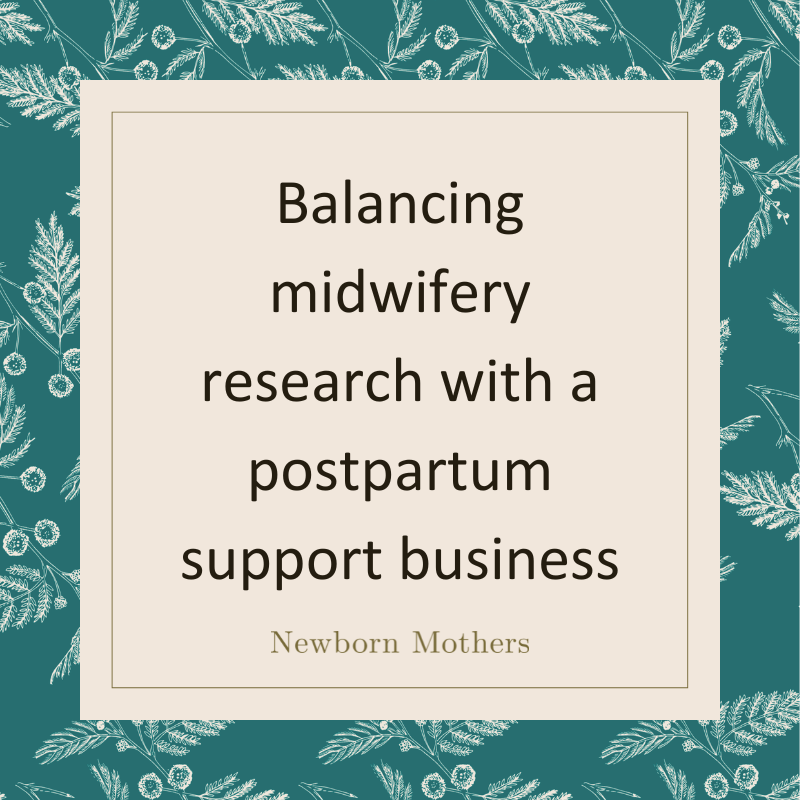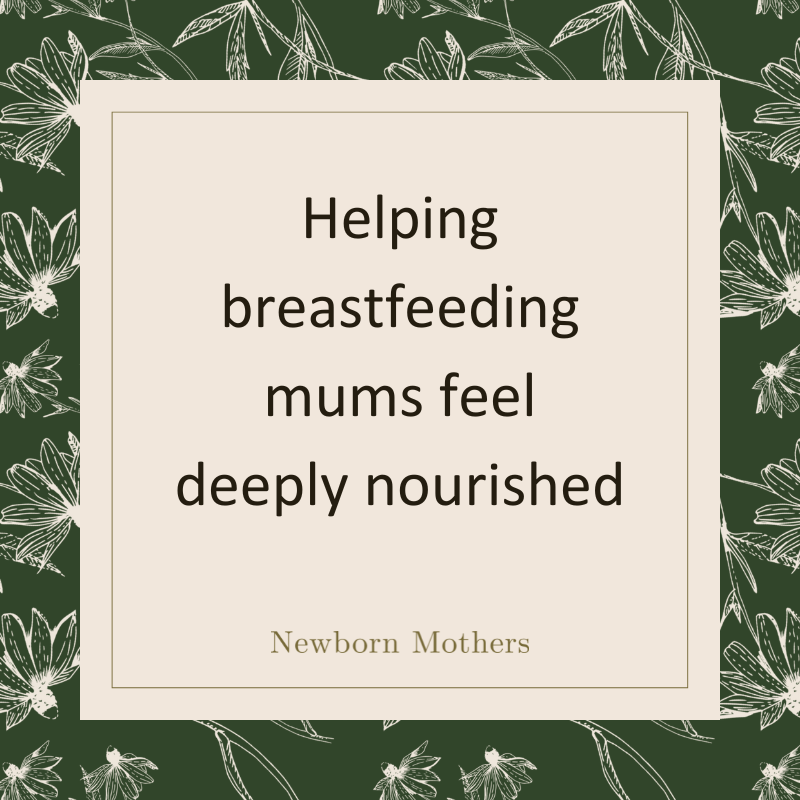4 vulnerable questions new parents might ask you
Discover how to answer 4 common and sensitive questions new parents ask, with tips, resources and reassurance for postpartum professionals.
From psychology student to thriving doula business
Julia Jones talks with Jasmine Meek about her journey from studying psychology to discovering her calling as a postpartum doula. Jasmine shares how she sped through her training, quickly built a client base, and expanded her services to include postnatal massage and her innovative “mother’s helper” visits. Together, they explore the joys and challenges of starting a doula business, balancing family finances, and finding sustainable ways to support mothers at every stage.
Overcoming hip dysplasia challenges to build a postpartum care business
Julia Jones chats with Dani Potter about her personal journey navigating infant hip dysplasia and the impact it had on her postpartum experience. They explore how Dani transformed those challenges into a heartfelt mission: providing practical support to new mothers by preparing nourishing meals that help ease the early days of motherhood.
Creating a one-stop hub for holistic maternal support
Julia chats with Kathryn Stoneman, a postpartum doula who launched her business during COVID and later co-founded the Village Collective, a hub where 14 practitioners support women from preconception to postpartum. Kathryn shares her journey across Australia and the UK, the joys and challenges of running a multi-practitioner space, and her vision for bringing rituals, nourishment, and community back to motherhood.
The power of long-term doula support
Nikki is a Tucson-based doula who has shaped her practice around long-term care, supporting families not just in the first few weeks but for a year or more. She shares how her first client began as a baby shower gift, how she quickly set up her business and created a brand inspired by the desert, and how these extended relationships have become her specialty. They discuss the deep trust built over time, the flexibility of designing a business that truly fits your life, and the unique value of staying alongside families as they grow.
Balancing midwifery research with a postpartum support business
Julia Jones sits down with research midwife Jessica Mulhall to hear the inspiring story behind her Melbourne-based postpartum support business. They chat about the challenges of balancing a day job with the demands of a growing business. Jessica shares her heartfelt mission to transform traditional baby showers into intimate, mother-centred "nesting parties," helping new parents gather their villages.
From discarded to held: reviving the lost art of mother-centred care
Julia chats with Newborn Mothers graduate Keturah Stoltenberg, a postpartum doula, massage therapist, and bengkung belly binder based in Sydney. Keturah shares how her early experiences of motherhood inspired her to offer the kind of care she wished she had received. Together they explore the emotional impact of mothers feeling “discarded” after birth, the underestimated value of simply being seen and heard, and the cultural importance of reviving traditional postpartum practices.
Comforting postpartum recipes from our graduates
Postpartum recovery starts with food. Discover nourishing recipes rooted in traditional care practices that support healing, boost energy, and restore balance for new mums. These simple meals can make all the difference in the weeks after birth.
Helping breastfeeding mums feel deeply nourished
Julia Jones sits down with Tara Yewdall to hear the inspiring story behind her Sunshine Coast-based breastfeeding support business. They chat about the challenges of rebuilding a career after personal loss while homeschooling and growing a business. Tara shares her heartfelt mission to support depleted breastfeeding mums with practical nutrition and local community care, and her vision of creating a nurturing hub where new mothers can feel truly nourished and seen.
How to help your postpartum clients build a 21st-century village
Discover 6 practical strategies to help your postpartum clients build a 21st-century village. From inclusive virtual support to real-life community groups, this guide empowers you to nurture long-term support networks for new parents.
Nesting parties: rethinking the baby shower
In this episode, Julia chats with Danielle Liddick from Nest about how “nesting parties” can replace traditional baby showers with practical, meaningful postpartum support. Discover how postpartum professionals can help families prepare for life after birth by building their village before the baby arrives.
Reimagining postpartum care for expat mothers in Berlin
I chat with Newborn Mothers graduate Katerina Koukaki from Mothering Days. Together we discuss the realities of working as a postpartum doula in Berlin, why so many of her clients use health insurance to access her services, and how to support parents with realistic expectations around sleep and feeding. At the core of this conversation, we explore the cultural shift needed to move from crisis-based support to proactive, universal postpartum care.
5 breastfeeding myths that all postpartum doulas should know about
Bust five common breastfeeding myths every postpartum doula should know. Learn evidence-based responses to help new parents feel confident and supported in their breastfeeding journey. A practical guide for doulas who want to provide reassurance and accurate information during the early weeks.
Mental health helplines for newborn parents around the world
Discover how to support new parents facing anxiety or depression with practical mental health tools and global helpline directories. Start by completing a free self-assessment checklist from PANDA, and learn how postpartum professionals can share and personalise mental health resources.
A giant resource list for safe infant sleep
Looking for trusted, evidence-based infant sleep resources? This giant list is perfect for doulas, midwives, and postpartum professionals. Find expert advice from AAIMH, BASIS, ABA, Red Nose, UNICEF, and more. Help parents make informed decisions about safe sleep, co-sleeping, and baby sleep habits. Bookmark now for easy access to the best sleep resources!
5 myths about newborn sleep
Debunk common newborn sleep myths with expert insights from midwife and infant sleep consultant Katie Cortés. Learn why holding your baby won’t spoil them, why short naps are normal, and how safe co-sleeping can be beneficial. Get science-backed guidance to support new parents with confidence.
How to help new parents get more sleep
Struggling with sleep as a new parent? This guide shares expert-backed strategies to help your clients get more rest—without extra stress. From co-sleeping tips to power naps and circadian rhythms, learn how to support postpartum families with gentle, practical solutions. Discover evidence-based advice on improving sleep for new parents and helping them feel more rested and supported.
15 benefits of baby brain
Learn about the science behind baby brain and why it’s not all doom and gloom! In this post we’ll explore 15 surprising benefits, from becoming more sensitive and empathetic to being a brilliant multi-tasker. You’ll also learn how postnatal doulas can support newborn mothers to enjoy these baby brain benefits.
What causes baby brain?
Ever wondered if baby brain is real? Also known as momnesia, mummy brain, pregnancy brain or mommy brain, this phenomenon is more complex than it sounds. We explore the myths and facts behind mommy brain, and dive into the neuroscience underpinning maternal behaviours.
The best of 2024: top 12 posts for postpartum professionals
Dive into our top 12 of 2024. This is a mix of your favourites and ours—some oldies but goodies, some brand-new gems, and a few hidden treasures we think deserve a little extra love. Whether you’re just starting out in postpartum care, building your business, or supporting new parents, there’s something here for you.




















